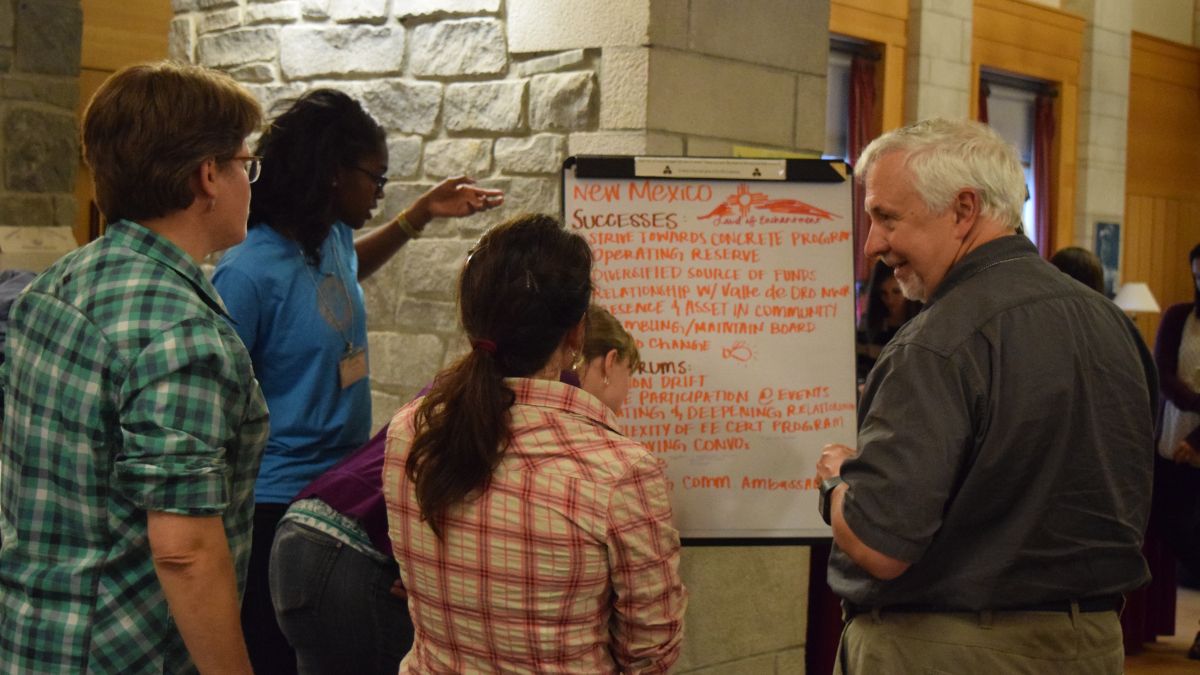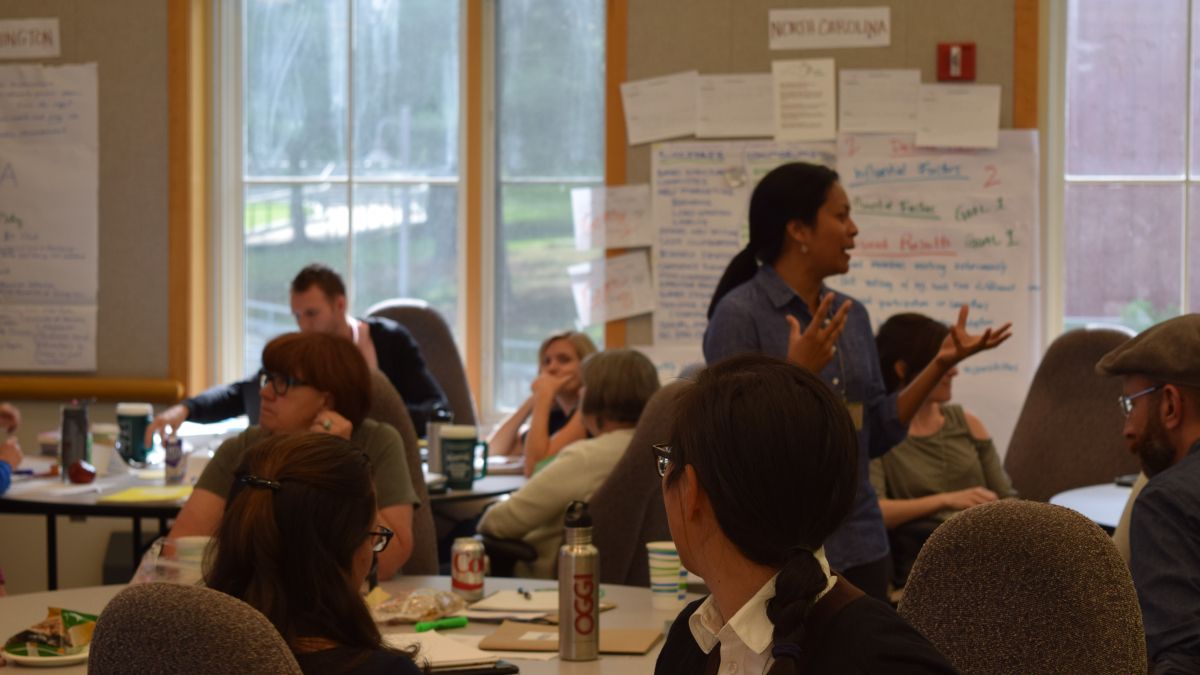
ee360 Goal 2: Cultivating Collective Impact through an inclusive, dynamic, and robust environmental education field with the structures and programs needed to sustain high-quality environmental education over the long term at the state, regional, and national levels.
Image

Supporting State Infrastructure
NAAEE is helping the Affiliate Network increase their capacity and become stronger leaders in the field of environmental education, through trainings, networking, and long-term action planning.
Strong and well-coordinated leadership and infrastructure are essential to sustaining high-quality environmental education over the long term at the state, provincial, and national levels. This requires leaders at the state level who are working in concert on carefully planned strategies to advance their EE efforts and prepare more educators to reach broader and more diverse audiences. NAAEE is helping state leadership teams from within the NAAEE Affiliate Network to develop and grow the knowledge and skills they need to advance these efforts. Drawing on research on capacity building and input from state leaders, NAAEE and Affiliate leaders are identifying the ideal structures and programs needed on the state level to sustain environmental education for diverse audiences in formal and non-formal settings over the long term. We developed an organizational assessment tool (OAT) for states to use to determine their strengths and gaps with regard to this model, and identify areas where training will assist them in building their capacity for effective and far-reaching environmental education.
Partners: Affiliate Network, NAAEE
People: Sarah Bodor, Ashley Hoffman, Lori Mann
Image

Accreditation
NAAEE Accreditation formally recognizes high-quality college and university programs that consistently prepare well-qualified environmental educators who possess the understanding, skills, and dispositions associated with environmental literacy, as well as the ability to apply them in their educational practices.
NAAEE Accreditation formally recognizes high-quality college and university programs that consistently prepare well-qualified environmental educators. The purpose of Accreditation is to provide a third party, standards-based review process that encourages and recognizes excellence in the preparation and professional development of environmental educators. The accreditation process facilitates the in-depth, continual assessment and improvement of environmental education preparation and professional development programs within higher education institutions.
Accreditation helps institutions:
- market their programs to students;
- provide evidence of excellence for employers, funders, and donors;
- document program impact for university-wide reviews;
- demonstrate to the public, governing boards, and others that the program is using best practices and preparing well-qualified graduates; and
- assure alumni and other supporters that the program maintains high standards.
Accredited institutions provide evidence that their programs are aligned with the Guidelines for the Preparation and Professional Development of Environmental Educators. In addition, they demonstrate through assessment data that their students meet these standards.
In order to ensure that the Accreditation program reaches its potential audiences effectively, UO is drafting a strategic plan on marketing accreditation to college and university faculty and administrators. UO is in the process of working with a consultant to gather research and write a report on recommendations.
Through mentoring, a strategic marketing plan, and a one-day workshop, NAAEE and Dr. Bora Simmons will ensure that preservice faculty members understand how they can design their environmental education programs to meet Accreditation standards.
Read about NAAEE's Accreditation process >
Partners: NAAEE, University of Oregon
People: Bora Simmons
Image

Certification
NAAEE is working with experts to improve its educator certification program, developed to ensure individuals are well prepared to design and implement high quality programs that meet the national Guidelines for Excellence in environmental education.
Currently, 15 states have developed programs for certifying individual environmental educators, ensuring that these individuals are well prepared to design and implement high-quality programs that meet the national Guidelines for Excellence in Environmental Education. These programs are based on the Guidelines for the Preparation and Professional Development of Environmental Educators, published as part of NAAEE’s National Project for Excellence in Environmental Education. NAAEE Affiliates operate most of these programs, with a few managed by other state agencies in cooperation with the Affiliate. NAAEE accredits state certification programs to ensure that state programs maintain a high level of rigor and to guarantee reciprocity among programs.
While the national focus has been on constructing a new vision for the overall program, 15 states have continued to operate existing certification programs and additional states continue to express interest in developing new programs.
To support environmental educators who are new to the field, NAAEE is developing a third online eeLEARN module focused on environmental education research and evaluation.
Partner: NAAEE
People: Sarah Bodor, Lori Mann